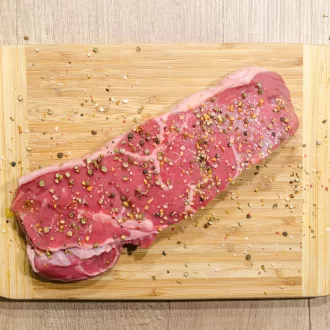ByOnlinecourses55

Myths realities carnivorous diet - nutrition carnivore
The carnivore diet has gained popularity in recent years, but it has also been the subject of numerous criticisms and misunderstandings. Here, we break down some of the most common myths and offer a balanced view of what following a diet based exclusively on animal products really entails.
One of the most persistent myths is that the carnivorous diet cannot provide all the essential nutrients. However, proponents of this diet point out that meat, especially offal, is rich in key vitamins and minerals such as vitamin B12, iron, zinc, and selenium. In fact, organs such as liver are extremely nutrient-dense sources, providing more vitamins than many vegetable sources.
For years, it has been said that red meat consumption, due to its saturated fat content, increases the risk of heart disease. However, recent studies have shown that the relationship between saturated fat and heart disease is more complex than previously thought. What matters is the quality of the meat and the overall context of the diet. Consuming unprocessed meat and balancing it with other sources of healthy fat, such as fish, can offer benefits without the feared risk of heart problems.
A frequent argument is that without fiber, digestion will suffer. However, many people who follow the carnivorous diet report healthy digestion without the need for fiber. Although fiber is important in plant-based diets, the human digestive system can adapt to a diet rich in protein and fat, eliminating the dependence on fiber for bowel regularity.
This is a common misunderstanding. The carnivore diet is not just about eating steaks every day. There is a wide variety of foods you can eat: beef, chicken, fish, seafood and even organ meats such as liver and heart, which provide diversity in flavor and texture. In addition, the use of different culinary techniques such as roasting, grilling and smoking, along with spices and herbs, can keep meals interesting.
The carnivore diet is said to be more expensive than other diets. While it's true that buying high-quality meats can be expensive, there are ways to make this diet more affordable. Opting for ground meats, buying in larger quantities or taking advantage of bargains can help reduce costs. Also, since meats are very nutrient dense, you may end up eating less of them compared to other diets.
Despite the myths, the carnivore diet also has several reported benefits, such as improving autoimmune diseases, reducing inflammation, and aiding in weight loss due to the elimination of refined carbohydrates. Many people also report greater mental clarity and a more sustained energy level.
In summary, the carnivore diet, while controversial, can offer benefits to those who adopt it properly. As with any eating plan, it is important to consult a health professional before making drastic dietary changes.